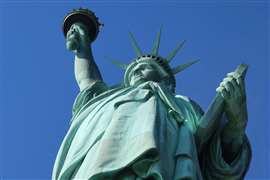China tightens Belt and Road financing
23 November 2021
 A giraffe walks near an elevated railway line that allows movement of animals below the Standard Gauge Railway line linking Nairobi and Naivasha, Kenya October 19, 2021. Picture taken October 19, 2021. REUTERS/Thomas Mukoya
A giraffe walks near an elevated railway line that allows movement of animals below the Standard Gauge Railway line linking Nairobi and Naivasha, Kenya October 19, 2021. Picture taken October 19, 2021. REUTERS/Thomas Mukoya
China is slowing down the financing for Belt and Road (BRI) projects in Africa as the Covid-19 pandemic has caused a ‘rebalancing’ of China’s approach to the world’s largest infrastructure investment scheme, according to a news report from Reuters.
Chinese investments in the 138 countries targeted by BRI declined 54% from 2019 to US$47 billion last year, the lowest amount since the BRI was unveiled in 2013, according to Green BRI, a China-based think-tank that focuses on analysing the initiative.
In Africa, home to 40 of those BRI nations, Chinese bank financing for infrastructure projects fell from US$11 billion in 2017 to US$3.3 billion in 2020, according to a report by international law firm Baker McKenzie.
China has lent African countries hundreds of billions of dollars as part of President Xi Jinping’s BRI, which envisaged Chinese institutions financing the bulk of the infrastructure in mainly developing nations. Yet the credit has dried up in recent years.
On top of the damage wrought to both China and its creditors by Covid-19, analysts and academics attribute the slowdown to factors such as a waning appetite in Beijing for large foreign investments, a commodity price crash that has complicated African debt servicing, plus some borrowers’ reluctance to enter lending deals backed by their natural resources.
“We are not in the go-go period anymore,” Adam Tooze, a Columbia University historian, said about China’s overseas investment projects. “There is definitely a rebalancing from the China side.”
This is a blow for governments who were anticipating securing Chinese loans to build highways and rail lines linking landlocked countries to sea ports and trade routes to Asia and Europe. The continent is facing an estimated annual infrastructure investment deficit of around US$100 billion, according to the African Development Bank.
“The pandemic has actually made things worse. Those numbers will go up,” said Akinwumi Adesina, the president of the bank, citing the need for additional infrastructure to support health services.




